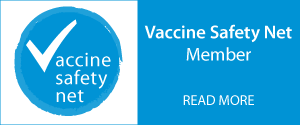This list includes opportunities to take courses on vaccine safety, vaccinology, pharmacoepidemiology, and more.
Open WHO: Vaccine Safety Basics: This free online course introduces participants to the foundations of vaccine pharmacovigilance. The aim of this course is to provide healthcare professionals whose work involve vaccine safety issues, with essential knowledge about vaccines and their safety aspects. These professionals can include nurses, midwives, community health workers, as well as pharmacists, medical doctors and immunization programme or vaccine safety communication officers. Duration: 5 hours.
WHO Training Slides: Monitoring and Responding to AESI: These training slides were developed from the WHO COVID-19 Vaccines Safety Surveillance Manual, “Monitoring and Responding to Adverse Events of Special Interest (AESIs).
International Collaboration on Advanced Vaccinology Training: The International Collaboration on Advanced Vaccinology Training provides a list of more than 30 existing advanced vaccinology courses of varying durations and training modalities (in-person, online, blended), and an easy search process for interested parties looking for a vaccinology course.
Emory University Vaccinology Training Program: The Emory Vaccinology Training Program (VTP) was created in response to an urgent need to train a new generation of researchers in the field of vaccinology. Vaccines have made an unparalleled contribution to preventive medicine – their successful introduction and widespread use has resulted in the eradication of smallpox, the elimination of wild polio virus from most parts of the world, and a 95 percent or greater reduction in morbidity within the United States as compared to representative 20th century rates for at least six other vaccine-preventable childhood diseases. While vaccines do hold great promise for reducing disease burden, a new generation of scientists is needed to address difficulties that have plagued efforts to develop and deliver additional needed vaccines for infectious diseases like HIV/AIDS, malaria, hepatitis C, and tuberculosis and for other disabling diseases such as cancer and dementia.
Uppsala Monitoring Center Courses: Together with its partners, Uppsala Monitoring Centre offers a range of learning programmes and resources that support the safer use of medicines. The interactive online and self-paced courses provide national centres and regulatory bodies with the technical know-how and skills to strengthen their pharmacovigilance systems and practices, as well as increase their capabilities in communications and signal detection.
International Society for Pharmacoepidemiology: Educational Programs: ISPE provides a list of educational programs in pharmacoepidemiology, including degree-granting programs, non-degree programs, and post-graduate programs. The training programs listed cover pediatric pharmacoepidemiology, pharmacology, pharmacy, and other related areas.
Melbourne Vaccine Education Centre: The Melbourne Vaccine Education Centre’s education portal contains up-to-date eLearnings designed to allow immunisation providers to consolidate and evaluate their technical skills.
Advanced Vaccinology Course in India: The Christian Medical College, Vellore, offers a course that aims to provide a comprehensive overview of Vaccinology, and strengthen the capacity within India in this field. The course covers aspects of vaccinology, from basic immunology, the process of development of a vaccine, the licensure and regulatory requirements, the process of introducing a new vaccine into a country, vaccine trials, and translation of research into policy.


